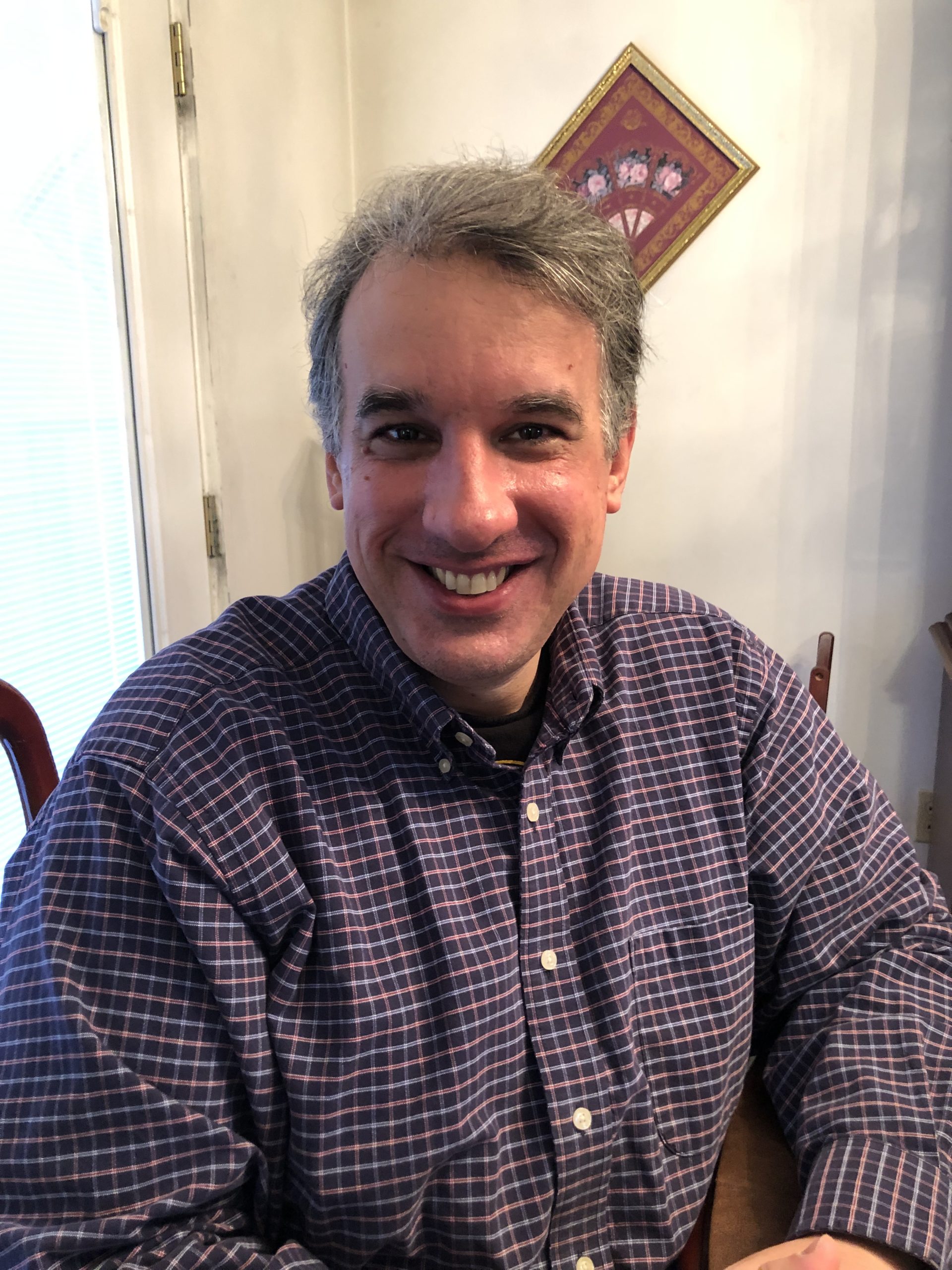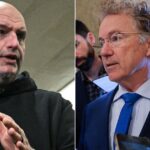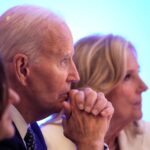
On Aug. 6, 1945, U.S. forces dropped an atomic bomb on the Japanese city of Hiroshima. Three days later, on Aug. 9, Japan suffered another devastating attack when a second atomic bomb detonated over Nagasaki.
The annual approach of the Hiroshima and Nagasaki anniversaries brings renewed debate over President Harry Truman’s decision to use the atomic bombs.
This year, the July 21 release of writer-director Christopher Nolan’s summer blockbuster “Oppenheimer” has given that debate a fresh context.
[embedded content]
Based on the Pulitzer Prize-winning 2005 biography, “American Prometheus: The Triumph and Tragedy of J. Robert Oppenheimer,” Nolan’s film tells the story of the famed American physicist who helped develop the world’s first atomic bomb and then, in the years following WWII, opposed the proliferation of nuclear weapons.
According to the Associated Press, the film’s $80.5 million opening weekend “soared past expectations” and represents “one of the best-ever starts for an R-rated biographical drama.”
The early success of “Oppenheimer” suggests that moviegoers remain interested in a political and ethical question that has occupied the world since 1945.
Was the atomic bombing of Japan necessary?
Any attempt to answer this question requires the utmost humility, for the degree of necessity depends on alternatives and probable outcomes at which posterity can only guess.
Do you think the bombings were necessary?
Yes: 100% (5 Votes)
No: 0% (0 Votes)
Furthermore, one must acknowledge differences in stake. The question of necessity, for instance, must have seemed far more urgent to a United States marine on Okinawa in 1945 than it does to a theatergoer in 2023.
With these different perspectives in mind, a number of writers have attempted to address the question of necessity.
In 2016, for instance, Bruce Klingner of the Heritage Foundation’s Asian Studies Center argued that Truman’s decision to drop the atomic bombs prevented a U.S. invasion of Japan that would have cost millions of American and Japanese lives.
This familiar argument, which no doubt would have sounded persuasive to U.S. servicemen and their families in 1945, assumes that a massive Allied invasion of Japan represented the likeliest alternative to dropping the atomic bombs.
In a 2018 commentary, however, Jason Lee Steorts, managing editor at National Review, described the use of atomic bombs as “gravely wrong indeed.”
Steorts declared himself “categorically unimpressed by arguments about counterfactual history,” i.e. what might have occurred otherwise, “because we simply have no way of knowing whether they are true.”
In this case, counterfactual arguments begin with the assumption that the U.S. had no choice but to demand unconditional surrender from Japan.
According to Steorts, this might or might not have been true, in which case “it should be considered an inviolable principle that one does not incinerate cities on speculative grounds.”
Meanwhile, Dr. Daniel McIntosh, Associate Professor Emeritus at Slippery Rock University in Pennsylvania, has expressed similar doubts based on evidence that conveys the Japanese perspective.
In a review of Tom Lewis’ book, “Atomic Salvation: How the A-Bomb Saved the Lives of 32 Million People” (2020), McIntosh questioned Lewis’ titular assertion and argued that it is “more likely that the use of nuclear weapons was important but not sufficient” in compelling Japan’s surrender.
McIntosh noted, for instance, that Japan’s Supreme War Council had decided to seek a negotiated peace as early as June 1945.
Furthermore, arguments for the atomic bombs’ decisive effect on Japanese leaders overlook other factors such as Soviet intervention.
Finally — and remarkably — records show that at a post-Hiroshima meeting, the members of the Supreme War Council did not even mention the bomb.
Thus, according to McIntosh, “the immediate shock effect of the atomic bombing was relatively minor and only appreciated by different actors over time.”
Modern readers might express astonishment at the fact that Japan’s leaders took little immediate notice of this world-changing development.
A full explanation of this relative indifference requires an understanding of events that occurred earlier in 1945.
In truth, the attacks on Hiroshima and Nagasaki did not even constitute the year’s most destructive aerial bombings of Japan.
On the night of March 9-10, U.S. B-29 Superfortress bombers carried out a catastrophic air raid against Tokyo that killed more people than either of the two atomic bombs did.
By August, U.S. forces controlled nearby Okinawa. Meanwhile, the war in Europe had ended.
U.S. military commanders in the Pacific, therefore, had thousands of bombers at their disposal.
Without the two atomic bombs, U.S. officials might have opted for relentless napalm attacks on Japanese cities.
In the end, Truman’s decision to drop the atomic bombs might have prevented a catastrophic invasion and an even more destructive series of air raids.
Or, it might have amounted to a grave and unnecessary error.
Thanks in part to “Oppenheimer,” the debate continues.





